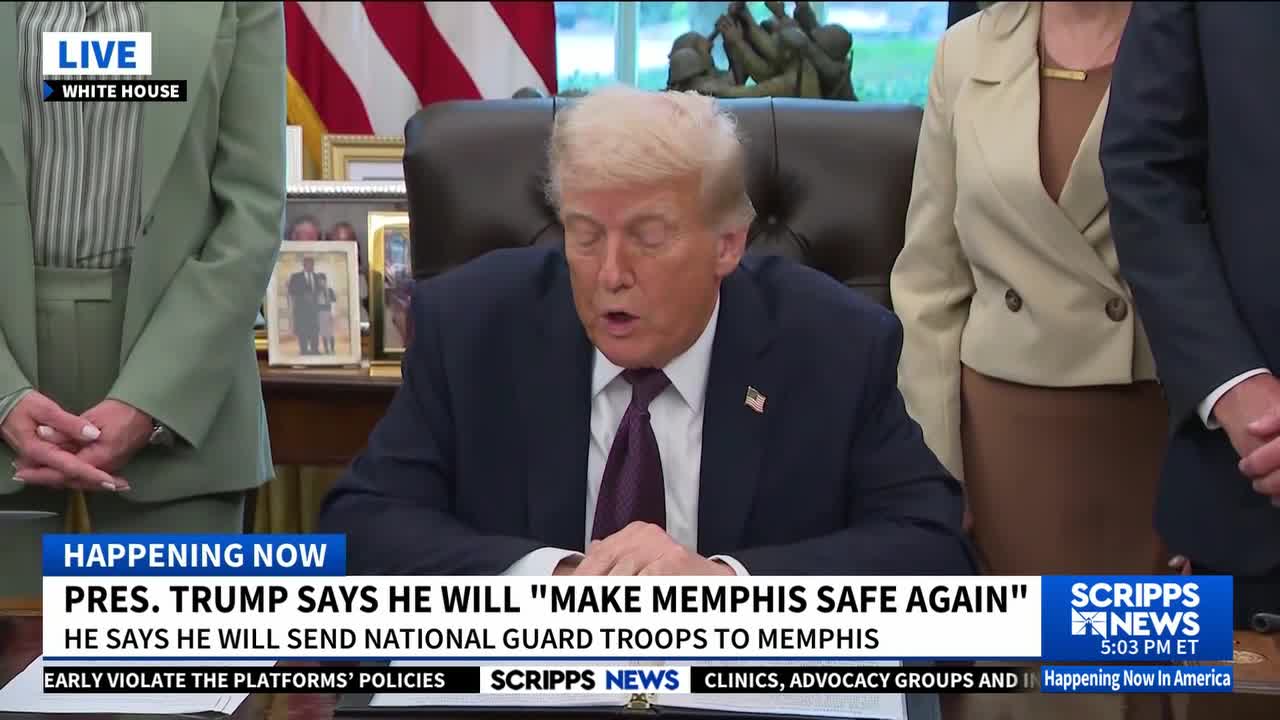President Donald Trump signed an order Monday to deploy the National Guard to Memphis, Tennessee, continuing a campaign his administration claims is to crack down on crime in American cities.
President Trump, meeting with Republican Tennessee Gov. Bill Lee in the Oval Office, said the deployment would be a "replica of our extraordinarily successful efforts" in Washington, D.C., where he deployed some 2,000 National Guard troops and federalized the city's police force.
But President Trump said in Memphis, "we're sending the big force now" — saying the task force would include personnel from Immigration and Customs Enforcement, the Drug Enforement Agency and the FBI.
The new deployment is meant to counter crime rates in Memphis, which the White House says is trending up.
Police in Memphis have reported major crimes are down year over year and currently at a 25-year low.
Memphis is a majority Black city.
RELATED STORY | Trump renews National Guard threat to Chicago, citing weekend killings
The Trump administration has suggested it may expand the National Guard deployment model to other cities, including St. Louis, Missouri and Baltimore, Maryland.
And in post this month that included an AI-generated image depicting military helicopters over the skyline, the president threatened to send the National Guard into Chicago, citing a weekend of deadly violence in the city.
"I love the smell of deportations in the morning," the post read. "Chicago about to find out why it's called the Department of WAR."
Federal law gives the president authority to deploy the National Guard under certain conditions. Many Democrats argue those conditions have not been met. Illinois Gov. JB Pritzker has said he would take legal action, if necessary, to prevent U.S. military forces from patrolling Chicago streets.




